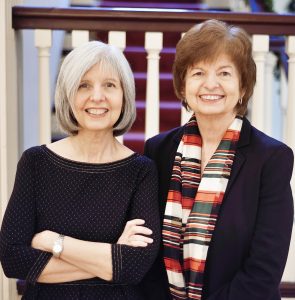Who We Are

Wanda Ronner and Margaret Marsh
Margaret Marsh and Wanda Ronner are sisters who have been collaborating for the past three decades on research in the history of infertility, reproductive medicine, and reproductive technology. Dr. Marsh is a University Professor at Rutgers University; her research home is the Institute for Health, Health Policy, and Aging Research. Dr. Ronner is a Professor of Clinical Obstetrics and Gynecology at the Perelman School of Medicine of the University of Pennsylvania.
Their most recent book, The Pursuit of Parenthood: Reproductive Technology from Test-Tube Babies to Uterus Transplants, published by Johns Hopkins University Press, examines the unprecedented means – liberating for some and deeply unsettling for others – by which families can be created through the use of assisted reproductive technology. It begins with early efforts to create embryos outside a woman’s body and ends with such new developments as uterus transplants and mitochondrial replacement techniques. Funded by an Investigator Award in Health Policy Research from the Robert Wood Johnson Foundation, the book weaves together the stories of the scientists and physicians who have developed these technologies, the women and men who have employed them, and the politicians, policy makers, and others who have sought to address them with laws or regulations. Two of the many issues it addresses are the relationship between the new reproductive technologies and the anti-feminist backlash that began in the 1980s and continued into the 1990s and beyond, and the ongoing racial, ethnic, and socioeconomic disparities in access to treatment. The book also dispels a number of fertility myths, offers policy recommendations, and explains why the United States is still considered the “Wild West” of reproductive medicine.
The Pursuit of Parenthood builds upon their two previous books on the history of infertility and reproductive medicine, both of which were funded by Collaborative Research Grants from the National Endowment for the Humanities and also published by Johns Hopkins University Press. Working on those two books sparked their interest in contemporary issues in assisted reproduction, the subject of this one.
